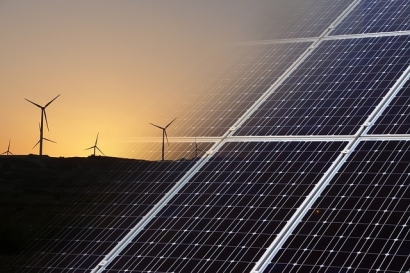
To achieve this objective, Repsol is setting new goals for the reduction of its carbon intensity indicator from a 2016 baseline: 10 percent by 2025, 20 percent by 2030, 40 percent by 2040, and net zero CO2 emissions by 2050.
These figures will form the basis for the 2021-2025 Strategic Plan, which will be presented to the market and investors in the first half of 2020.
"We are convinced that we must set more ambitious objectives to fight climate change. We believe now it is the right time for Repsol. We do it with the utmost confidence that we invest for the future. Addressing the significant challenges that lie ahead with strategic clarity is what will allow us to turn them into opportunities. We are convinced that this strengthens our project that is sustainable, attractive and profitable for all our stakeholders" said Chief Executive Officer, Josu Jon Imaz.
Repsol stated it is increasing by 3,000 MW its target for low-carbon electricity generation capacity, to 7,500 MW by 2025, and will begin to expand into other markets to become a leading international player in renewable energies.
Repsol currently has 2,952 MW in operation and 1,083 MW under development, and the Board of Directors has approved new investments to incorporate and build two photovoltaic and one wind power projects totaling an additional 1,600 MW. With these projects, the renewable power portfolio reaches a total capacity of 5,600 MW.
The company also plans to focus on the circular economy as a tool for the efficient use of resources and will double the production of high-quality biofuels derived from vegetable oils (HVO) to 600,000 tons per year in 2030, half of which will be derived from waste transformation before 2025.
Repsol will also integrate renewable energy into refining operations, which will incorporate production of green hydrogen as well as the use of renewable energy to fuel industrial processes.
The company's service stations will continue to expand the offering of electric charging points, liquid petroleum gas, compressed natural gas and liquefied natural gas, and will continue to complement its electricity offering with high-value services, such as domestic renewable power, aligned with the decarbonization pathway.
Repsol was the first company in the industry to support the Kyoto Protocol, and it is now intensifying its decarbonization ambitions with the aim of being a net zero emissions company by 2050.
Standard & Poor’s has ranked Repsol among the companies in its industry with the most advanced sustainability strategy and made a very positive assessment of the diversification of its businesses and its firm commitment to the Paris Agreement.
In addition, the company has pledged to work so that all the associations and initiatives in which it participates are in alignment with the targets derived from the Paris Agreement.
In 2020, Repsol will publish a report with an analysis of this alignment in all the associations and initiatives in which it participates, terminating its involvement with any whose actions or messages are incompatible with the fight against climate change.

